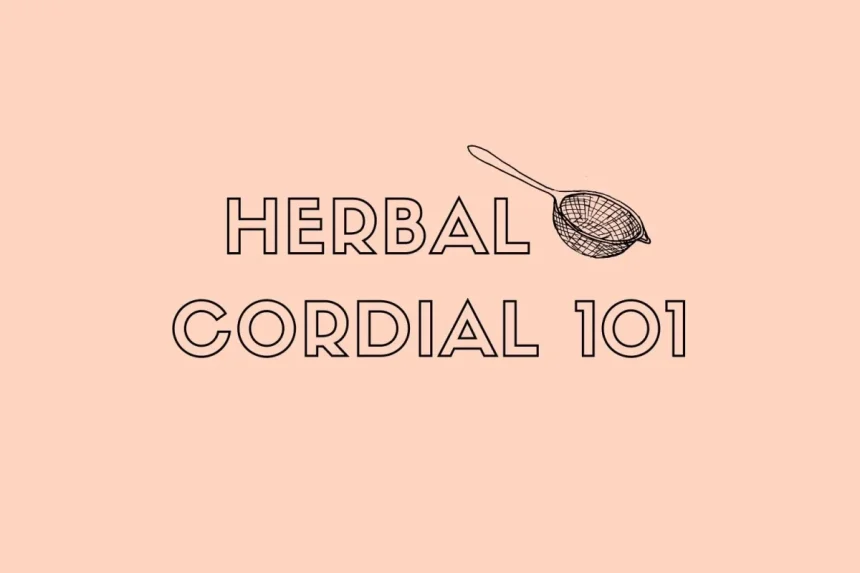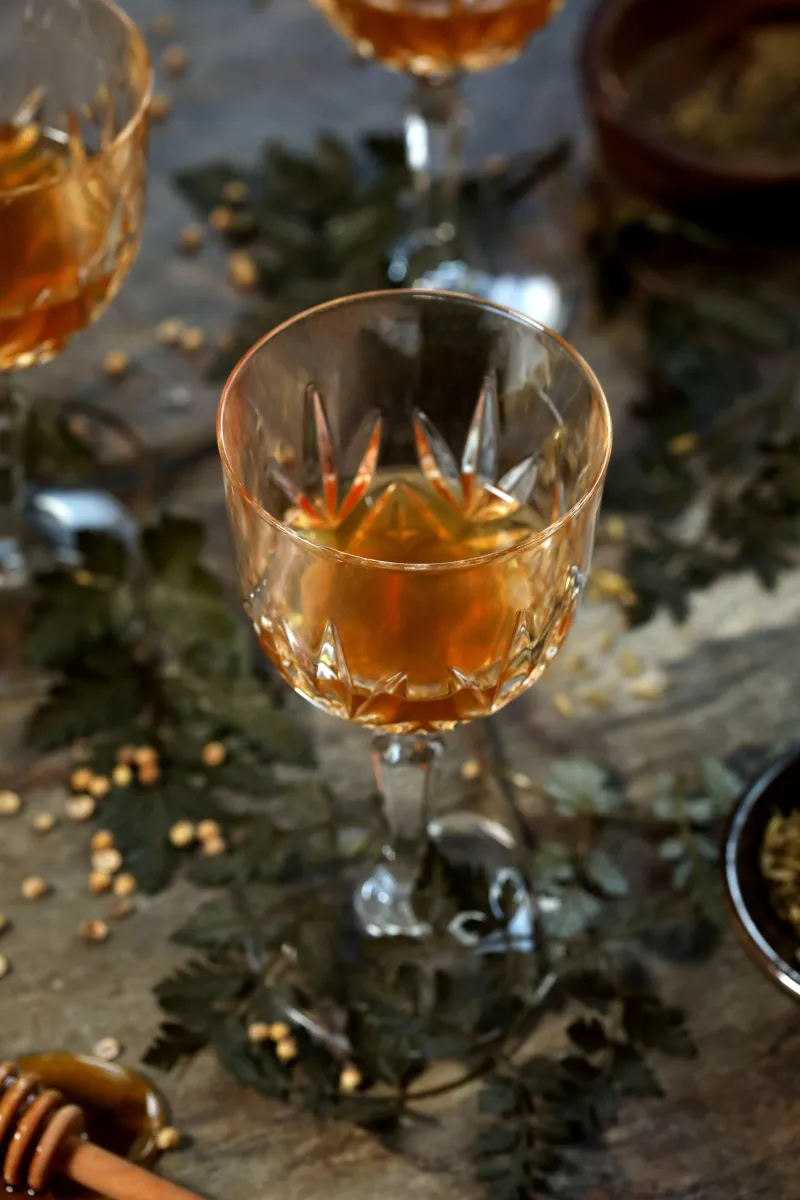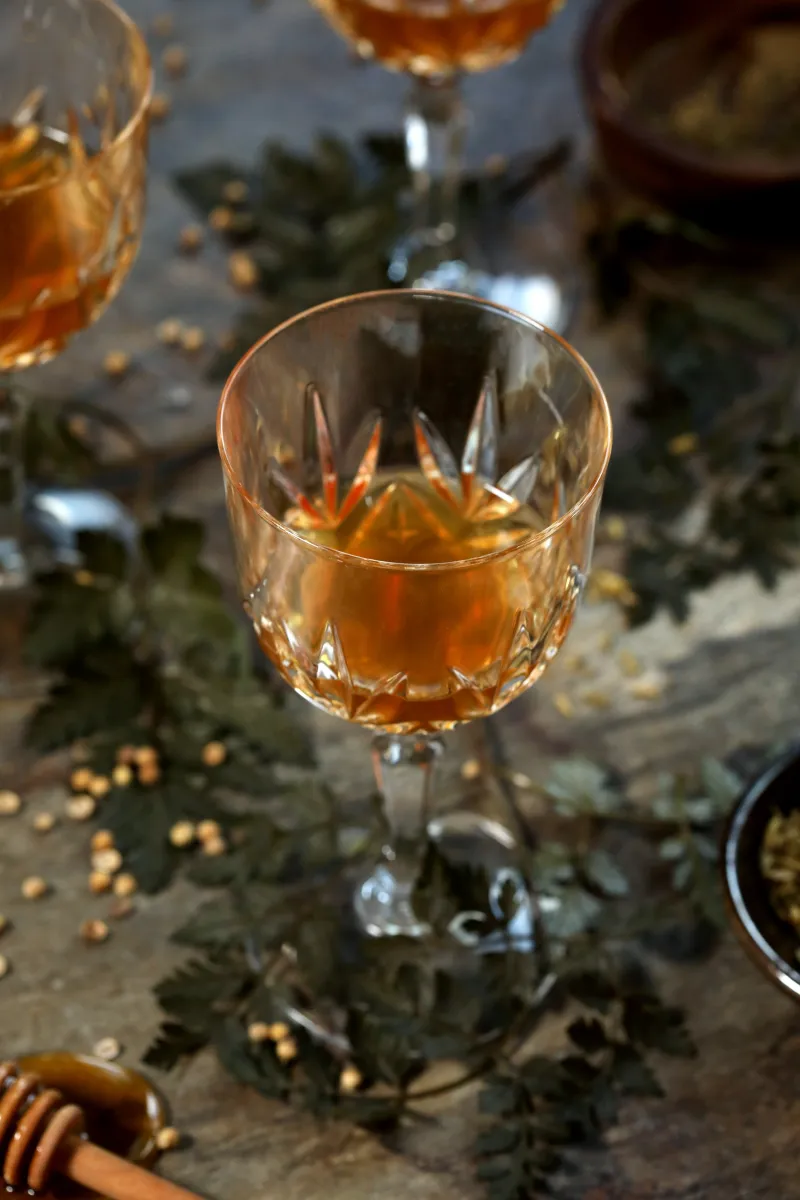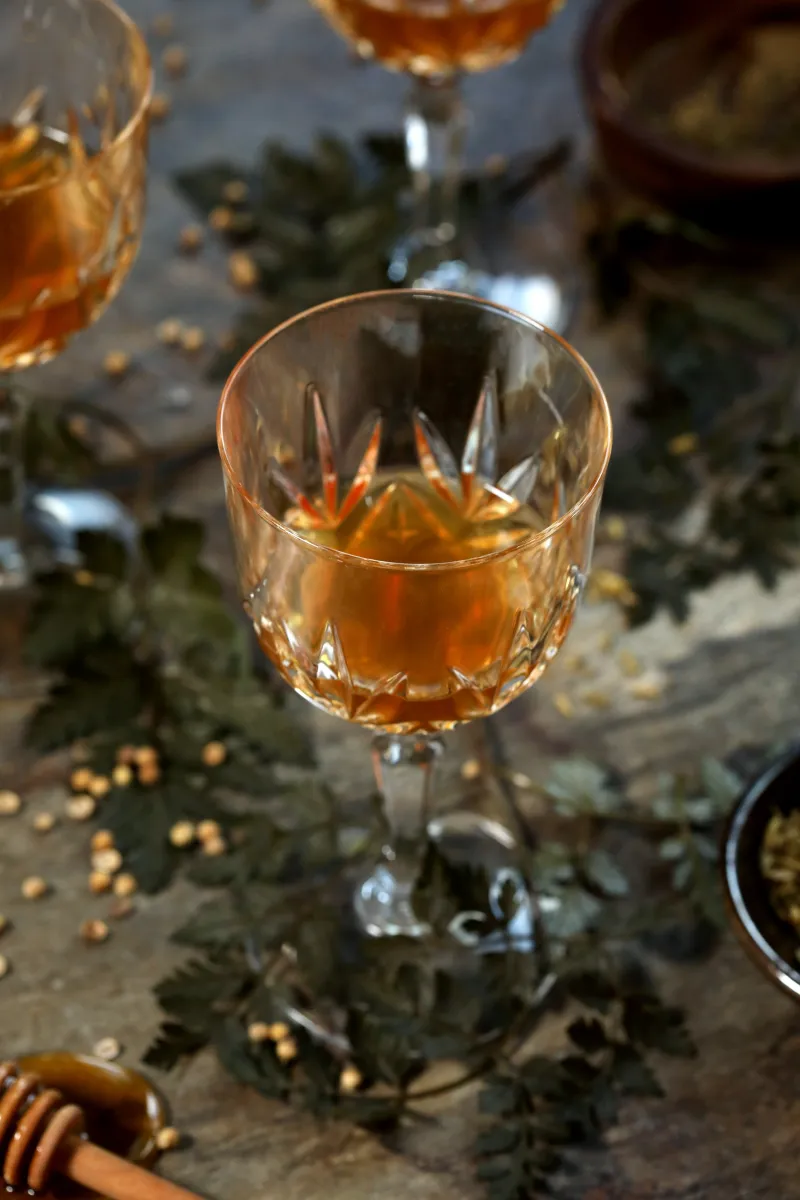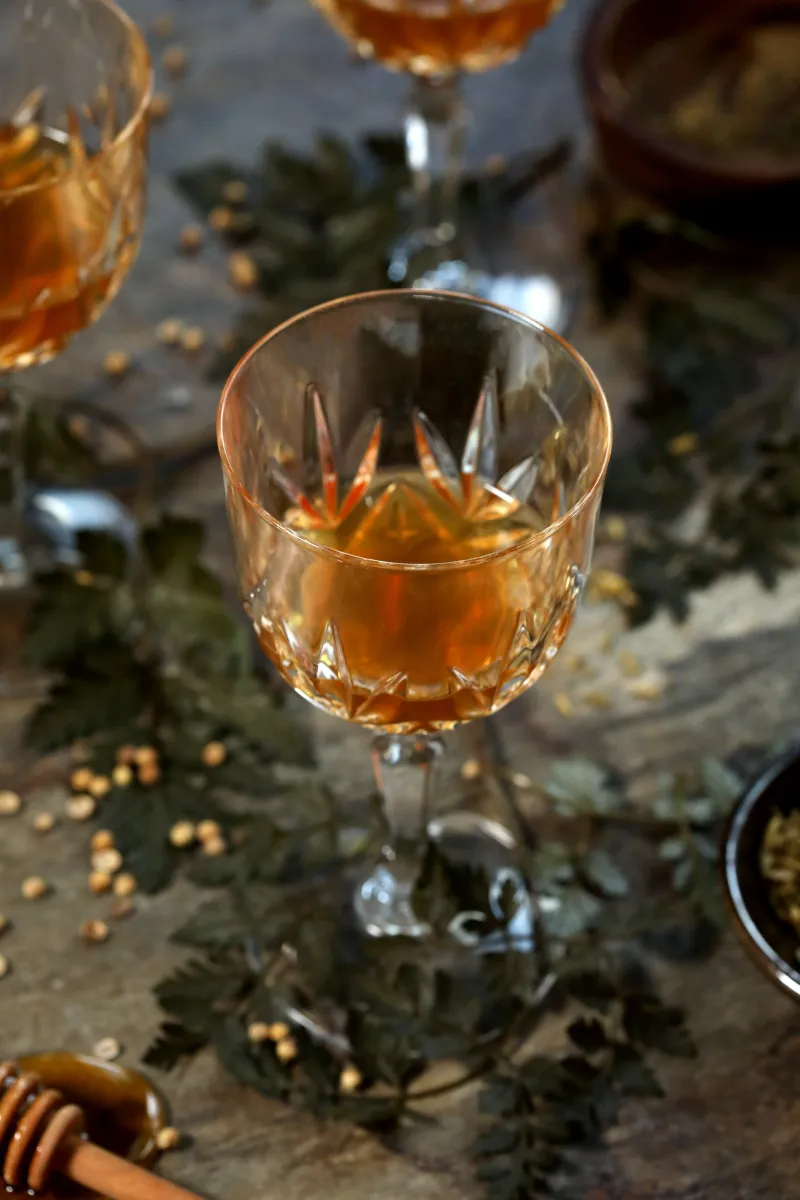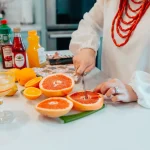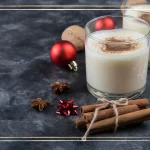What Are Herbal Cordials
Herbal cordials are sweetened alcoholic drinks made by soaking herbs, fruits, or spices in alcohol. This infusion brings out flavors and sometimes offers health perks like digestive or calming benefits. Think of them as flavorful boozy tonics you can sip on or use in cocktails.
These drinks have roots going back to Renaissance Europe, where they started as medicinal remedies. Over time, people began enjoying them simply for their taste or as a relaxing digestif after meals.
It’s useful to know how cordials differ from similar options: liqueurs tend to be sweeter and more complex with added flavors, while tinctures are usually stronger, less sweet herbal extracts used mainly for health purposes. Cordials strike a balance—pleasantly sweet and flavorful but not as concentrated as tinctures.
Why Make Herbal Cordials at Home
Making herbal cordials at home comes with plenty of perks. You get to customize the flavors exactly how you like—tweak the sweetness, the herbal mix, or the alcohol base to match your taste. It’s often more budget-friendly than buying specialty cordials at the store. Plus, homemade cordials make thoughtful, personal gifts for friends and family.
Many herbal cordials also offer potential health benefits. Certain herbs can support digestion, boost your immune system, or help you relax after a long day. Using fresh or dried herbs from your own garden or local farmers markets connects you more closely with natural living and seasonal ingredients.
Herbal cordials are incredibly versatile. They work well for sipping neat as a digestif, mixing into cocktails, or drizzling over desserts to add depth and herbal notes to your recipes. Whether you’re crafting a DIY liqueur with herbs or making a lemon balm cordial recipe, these drinks fit right into a variety of occasions and tastes.
Essential Ingredients for Herbal Cordials
When making a homemade herbal cordial with alcohol, choosing the right ingredients is key to a great result.
Base Alcohol Options
For the alcohol base, go with spirits that are 40% ABV (80 proof) or higher. This level helps preserve your cordial and keeps it safe from spoilage. Common choices are:
- Vodka: Neutral and clean, lets herbs shine.
- Brandy: Traditional and warm, pairs well with fruits and spices.
- Tequila: Bold and earthy, adds a unique twist.
Herbs to Use
Popular herbs bring flavor and benefits:
- Lemon balm: Calming, great for relaxing drinks.
- Elderflower: Floral and sweet, often antiviral.
- Damiana: Uplifting but use with care (avoid if pregnant).
These herbs add both taste and potential health perks, perfect for natural cocktail ingredients.
Sweeteners
Your choice here affects flavor and texture:
- Sugar: Classic, long shelf life, but less natural.
- Honey: Adds floral notes and is antimicrobial but can overpower delicate herbs.
- Maple syrup: Rich, earthy sweetness; great for autumnal cordials but pricier.
Each sweetener brings a slightly different twist, so pick based on your flavor goals.
Optional Additives
To boost flavor and preservation, consider:
- Citric acid: Helps keep your cordial fresh longer.
- Fruits: Like berries or citrus slices for extra complexity.
- Spices: Cinnamon, cloves, or ginger add warmth and depth.
These extras can elevate your DIY liqueur with herbs from simple to spectacular.
Step-by-Step Herbal Cordial Recipes
Lemon Balm and Honey Cordial
Ingredients
- 1 cup fresh lemon balm
- 2 cups vodka (40% ABV or higher)
- 1 cup honey
Instructions
- Place the fresh lemon balm in a clean jar.
- Pour vodka over the herbs, making sure they’re fully covered.
- Seal the jar and let it infuse in a cool, dark place for 4 to 6 weeks.
- After infusion, strain out the herbs using a fine mesh or cheesecloth.
- Stir in the honey until fully dissolved.
- Bottle your cordial and store it in the fridge or a cool spot.
Serving suggestion: Enjoy it neat as a calming digestif or mix with sparkling water for a refreshing drink.
Elderberry and Cinnamon Winter Cordial
Ingredients
- ½ cup dried elderberries
- 1 cinnamon stick
- 2 cups brandy (40% ABV or higher)
- ¾ cup sugar
Instructions
- Combine dried elderberries and cinnamon stick in a jar.
- Pour brandy over the ingredients, covering them completely.
- Seal and macerate for 2 to 4 weeks in a cool, dark place, shaking gently every few days.
- Strain out the solids.
- Stir in the sugar until dissolved.
- Bottle and store your cordial.
Health benefit: This herbal cordial is known for its antiviral properties, a great choice for cold season support.
Quick Herbal Cordial Method
If you’re short on time, simmer fresh or dried herbs with simple syrup and your chosen alcohol on low heat for 20-30 minutes. Cool, strain, and bottle. This method gives you a ready-to-drink herbal cordial the same day.
These homemade herbal cordial recipes with alcohol are simple to make, customizable, and perfect for sipping neat, mixing in cocktails, or gifting.
Tips for Perfecting Your Herbal Cordial
- Use fresh, organic herbs whenever possible for the brightest, most vibrant flavors. Dried herbs work too and usually pack a stronger potency, so adjust amounts accordingly.
- Always sterilize your jars and bottles before storing your cordial. This helps prevent spoilage and keeps your homemade herbal cordial safe to enjoy.
- Store your cordial in a cool, dark place for anywhere from 1 to 12 months. The longer it sits, the more the flavors develop and mellow.
- Start your recipe with a 2 to 1 ratio of alcohol to sweetener. This balance helps with preservation and taste but feel free to tweak it to match your preference.
- Research any herbs you plan to use, especially if you’re pregnant or nursing. For example, avoid damiana during pregnancy because it may have adverse effects.
Following these tips will help you create a flavorful, safe, and long-lasting alcohol-infused herbal cordial you can enjoy or gift with confidence.
Creative Ways to Use Your Herbal Cordials
Herbal cordials aren’t just great for sipping neat—they’re super versatile in both drinks and food. Here’s how to put your homemade herbal cordial with alcohol to good use:
Cocktails
- Add to classics like gin and tonics, spritzers, or martinis for a fresh herbal twist.
- Experiment with mixing your cordial in place of simple syrup to deepen flavor.
- Try pairing lemon balm cordial with sparkling water and a twist of lime for an easy refreshing cocktail.
Culinary Uses
- Drizzle herbal cordials over desserts like panna cotta or ice cream for an extra layer of flavor.
- Use elderflower cordial with alcohol in cakes or glazes to add light floral notes.
- Mix into fruit compotes or sauces as a flavor enhancer for savory dishes.
Gifting
- Bottle your cordials in pretty jars or bottles—perfect for holiday gifts or special occasions.
- Add a personalized label with the herbal ingredients and serving suggestions.
- Pair with a small cocktail recipe card or dried herbs for a complete DIY gift set.
These simple ideas make your herbal cordial recipe with alcohol a fun staple to keep around and share.
FAQs About Herbal Cordials
How long do cordials last?
With proper storage in a cool, dark place, homemade herbal cordials can last up to 1 year. If the alcohol content is higher (around 40% ABV or more), they can keep even longer without losing flavor or safety.
Can I make non-alcoholic cordials?
Yes! You can make non-alcoholic herbal cordials by infusing herbs in water or herbal tea, then mixing with simple syrup or honey. Combine with sparkling water or seltzer for a refreshing, alcohol-free version.
Which herbs are best for beginners?
Start with gentle, easy-to-find herbs like lemon balm, mint, and elderflower. They’re safe, flavorful, and widely used in natural cocktail ingredients and medicinal herbal drinks, making them perfect for DIY liqueur with herbs or alcohol-infused cordial recipes.
Aura’s Take Embrace the Art of Cordial Making
Making your own herbal cordials is a fun way to connect with nature and create something uniquely yours. Don’t be afraid to experiment with local, seasonal herbs—you’ll get flavors that reflect your area and the time of year. Whether it’s bright lemon balm from your garden or fragrant elderflowers from a nearby park, these personal touches make all the difference.
Once you’ve crafted your herbal cordial, consider sharing your creation with Aura’s community. It’s a great place to swap ideas, get feedback, and find inspiration from others who love DIY herbal drinks as much as you do.
For more tips on using fresh herbs, check out our guides on Foraging Tips for Beginners und DIY Cocktail Recipes.

